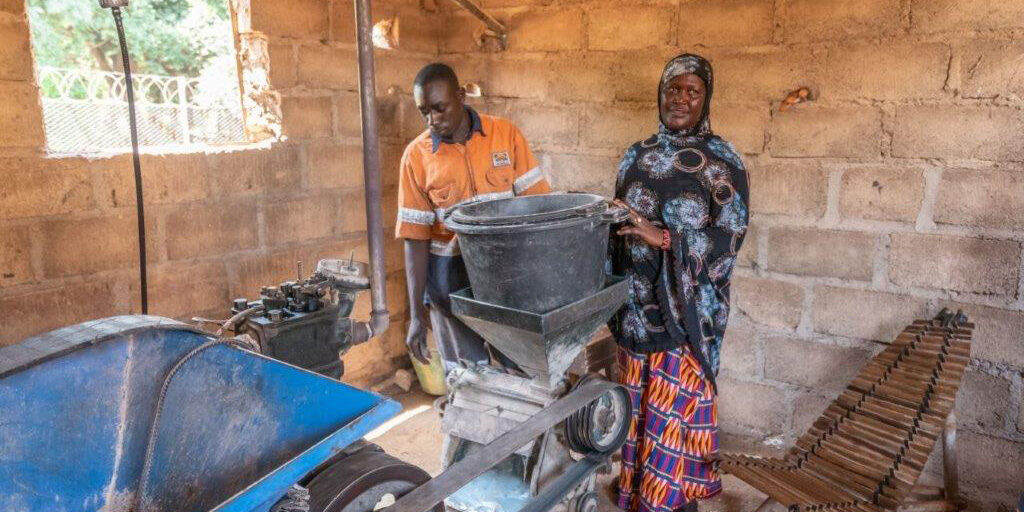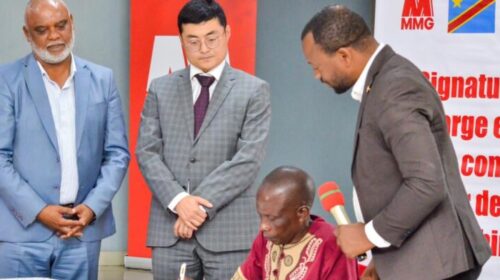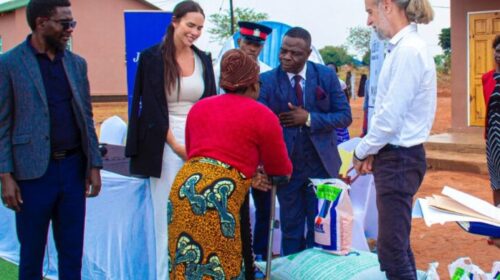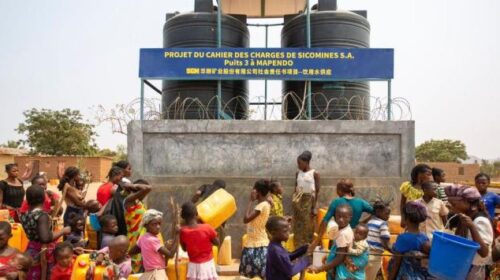Mining’s Critical Role in the Fight Against Poverty
One doesn’t usually associate mining with social development and poverty eradication, but mining is central in alleviating poverty and achieving many of the objectives of the United Nations Sustainable Development Goals. This role comes into sharper focus as the world works to curtail some of the worst impacts of the Covid-19 pandemic, which in less than two years has undone decades of progress in the fight against poverty and threatens to push up to a further 173 million people back below the poverty line.
Annually, the United Nations’ International Day for the Eradication of Poverty, promotes awareness for the need to eradicate poverty and destitution in all countries, which also aligns with many mining companies’ Sustainability Development Goals. At Barrick we resolutely believe that the mining industry has a crucial role to play in the eradication of poverty, but, how does mining contribute?
Mines and Money
Mining has been the primary driver of economic development throughout the world. Its products are entrenched in the lives of every person, every day and in many ways; our way of life is down to the resources extracted through mining. Mining’s ability to contribute significantly, immediately and over the long term, to socio-economic upliftment is a vitally important function in emerging countries and rural economies. By virtue of its scale, mining requires the development of significant infrastructure and creates thousands of direct jobs and scores more indirect opportunities, often in the least developed corners of developing countries. For example in 2020 Barrick:
- Provided direct employment to 20,000 people across 13 countries. 97% of all employees and 80% of senior management are host country nationals.
- In addition Barrick has over 23,000 contractors providing services across the group.
- Paid $1.8bn in taxes and royalties to host governments, and $1.9bn to employees.
- Spent $4.5bn procuring goods and services from local and host country suppliers.
- Invested $27 million in Community led development programmes designed to improve access to water, schooling, health care, food security and economic opportunities for local communities.
- Provided an additional $30m in Covid-19 support to local and host governments to support response efforts.
- Forward paid taxes in the Dominican Republic to accelerate the restart of local economic engines.
The cumulative impact is even greater, in Mali, our operations have contributed $7.9 billion to the greater economy over the last 24 years and in the Dominican Republic we represent approximately 5% of the annual tax revenues. In Papua New Guinea we have paid more than $1.7bn in tax and excise revenue since 1990.

Breaking the Cycle
We believe the ability to create jobs, thriving economies and contribute to alternate livelihoods that might benefit many of those left behind by society, is core to and a fundamental responsibility of any modern mining company. It is also nothing new for Barrick and is one of the key ways we measure our success as a business. We actively work to support local entrepreneurship in the communities we operate in, and we work to track the impacts of the investments we make in our host communities, for example:
- In Tanzania: At our North Mara mine we have supported Kemanyanki a youth collective to start a poultry business. They now sell hundreds of eggs each day to the mine caterers and to the local community. This has provided vital additional income, jobs and contributed to food security for the local community. The collective is now looking to build on their success and start their own microfinance fund to empower other local entrepreneurs.
- In Argentina: We take advantage of the fertile valleys near our Veladero mine and have worked with local catering company ARAMARK to promote and increase local agricultural production, again improving food security and providing additional income to local farmers.
- In Nevada, USA: During 2020 we launched the I-80 Fund which provides low-interest loans to small businesses so they can keep their businesses afloat following Covid-19. All monies repaid are reinvested in local community investment programmes furthering the benefits for the community.

Supporting Education and Gender-focussed Initiatives
We know education is one of the best routes out of poverty, which is why investment in education is one of our community development filters. Our investment in education starts with but certainly doesn’t stop at the construction of schools and classrooms. We take it to the next level and partner with specialist education-focussed NGOs, such as World Education, to provide teacher training and support. These efforts have helped drive pass rates at local schools to 91% compared to 64% in the wider region.
Most notable is the support we provide to women, which we believe is a cornerstone in poverty alleviation. The World Gold Council, through the Responsible Gold Mining Principles (RGMPs), identifies the need for increased support to women in mining, and those living in the host communities surrounding the mines. Ending poverty also requires role-players to acknowledge gender-based discrimination and violence that has led to an increase in the feminization of poverty in both developed and developing countries.
We specifically provide upliftment to women through initiatives such as women’s skill development and job application training provided in Nevada, soap and jam making in Mali, and market gardens across all AME sites.
Building Climate Resilience
Modern economic development cannot proceed without considering climate change, likewise, the transition to greener technologies cannot progress without considering the vast majority of humankind in the developing world. As we witnessed during the Covid-19 pandemic, no country or community is immune from the threat of climate change and as we have experienced with the Covid-19 pandemic, the consequences will most certainly be unevenly felt, with the poorest countries and most vulnerable peoples again carrying the heavier load for a problem that was not of their making.
There is, therefore, more to the climate discussion than just setting targets without achievable roadmaps and making promises merely to achieve compliance. That is why at Barrick we are working to not only develop robust emissions reduction targets for our operations that are grounded in the realities of climate science to address the root causes of climate change, but also ensuring that we create a sustainable business that continues to uplift our host communities and countries. By sharing the benefits of our business with our partners and local stakeholders, we play a key role in building their resilience to a changing world.
We are also looking and working beyond our mine gates to identify integration opportunities and the capacity needed to weather the storm. We have sought to augment our current development projects that pursue building capabilities in those developing communities that might be affected by the transition to a low carbon world so that they do not get left behind.
As an example, for almost a decade at our Kibali mine we’ve worked to give a remote part of the DRC a head start on green energy through the construction of three hydro-stations and the rehabilitation of a fourth. These facilities provide the energy necessary to run our operations in a clean manner, they also provide vital electricity to local communities. On a smaller scale we are offering resettled community members the option of access to micro-hydropower or solar power when building or receiving their new homes, helping build resilience in the community and cut emissions.
![]()





